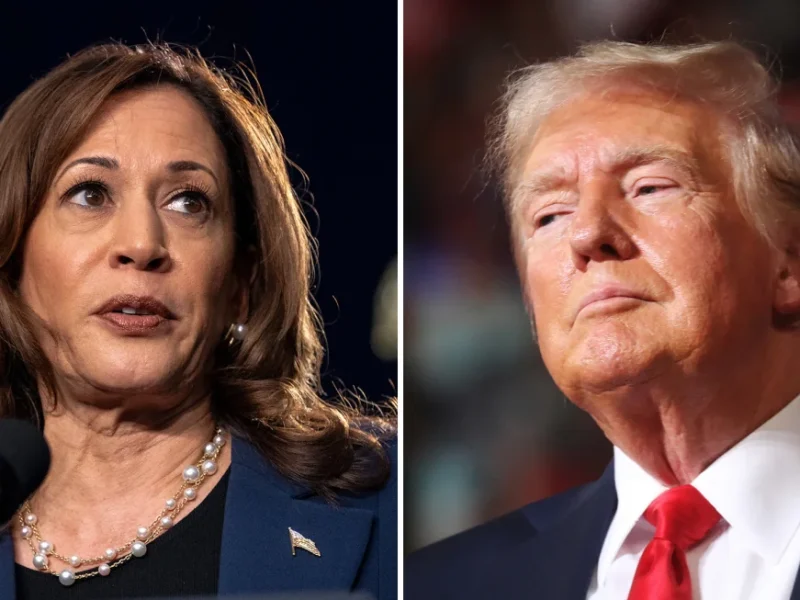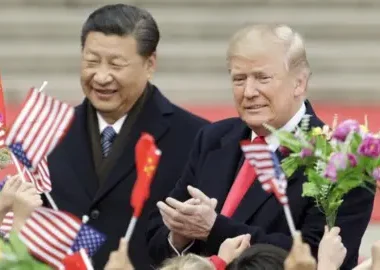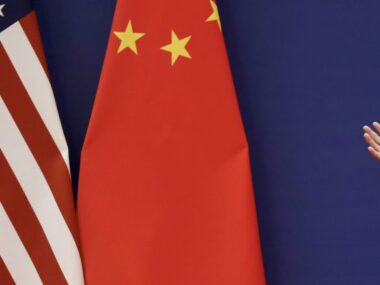Voters consistently tell pollsters that their main concern in the 2024 election is economic insecurity, but neither party has effectively addressed this issue. Both candidates are now making efforts to convince Americans they can bring prosperity. Former President Donald Trump plans to criticize Kamala Harris’s economic role in North Carolina on Wednesday, while the vice president will present her first major policy speech in the same state on Friday, focusing on reducing prices.
Despite the U.S. economy’s stronger recovery post-pandemic compared to other nations, Americans have long felt economically strained. Trump, who previously capitalized on economic discontent, has shifted to divisive rhetoric and exaggerated warnings of economic collapse. His claims of economic success during his first term overlook the reality that his tax cuts mainly benefited the wealthy.
President Joe Biden’s focus has been on economic fairness, infrastructure, and manufacturing revival. However, his spending has contributed to inflation, which has hurt many Americans. Harris has not yet offered detailed plans on reducing prices, despite her current popularity within her party and a narrowing gap in polls against Trump. Nonetheless, she faces significant challenges ahead.
As the de facto incumbent, Harris is vulnerable to economic shifts. Trump quickly dubbed a recent stock market dip a “Kamala crash,” though he has been quieter as markets rebounded. Economic data reflect mixed signals, adding to the uncertainty. Voters seeking clearer economic plans may find answers soon, as both candidates are under pressure to clarify their policies. Trump’s team is eager to link Harris to Biden’s perceived failures before she defines her economic approach.
Trump’s campaign has criticized the current administration’s policies, citing high prices and increased living costs as key issues. Meanwhile, Harris is working to establish her economic vision, with a major speech scheduled in Raleigh to outline her plans, including addressing corporate price-gouging and reducing costs for middle-class families.
Trump consistently falls short.
It’s not difficult to come up with straightforward campaign themes that could help Trump regain his footing after being surprised by the switch from Biden to Harris. However, Republican operatives are increasingly frustrated that the former president remains fixated on personal grievances and behavior that alienate key suburban voters in swing states, rather than focusing on issues like the economy, border security, and global challenges.
Political commentator Scott Jennings urged Trump to concentrate on these critical issues, pointing out that most Americans are still concerned about economic anxiety and believe the country is off track. Republican strategist Brad Todd also emphasized the need for Trump to focus his message, especially when on camera, to communicate effectively what voters could expect if Kamala Harris wins.
Former House Speaker Kevin McCarthy echoed this sentiment, advising Trump to stop focusing on trivial matters like crowd sizes and instead challenge Harris on her policies. Although Trump did touch on economic issues like inflation and energy production in a conversation with Elon Musk, he quickly veered off-topic, highlighting his tendency to lose focus. In contrast, his running mate, Sen. JD Vance, has maintained a much sharper focus on the economy while campaigning.
Harris combines empathy with a touch of populism.
Harris’s three-week political honeymoon continues, likely gaining momentum at next week’s Democratic National Convention in Chicago. The event will focus on enhancing her appeal, particularly on economic issues, with the help of Bill Clinton and Barack Obama, two of the party’s most skilled speakers.
Clinton, who delivered a memorable speech in 2012 that bolstered Obama’s reelection bid, and Obama himself will be instrumental in building Harris’s image. Early signs suggest that Harris’s rise is easing Democratic concerns over the economy. Recent polls show her closing the gap with Trump on economic trustworthiness, especially in key swing states.
With Trump trying to define her negatively on the economy, Harris is making strategic moves. She’s already adopted Trump’s idea to end federal taxes on tips, aiming to win over service workers in Nevada. Harris is also shifting her tone, acknowledging economic challenges while pledging to take on corporate greed and prioritize middle-class families.
This mix of empathy and populism could help Harris counter Trump’s lead on economic issues, particularly in crucial states like Pennsylvania, Michigan, and Wisconsin, as she aims for the Oval Office.











